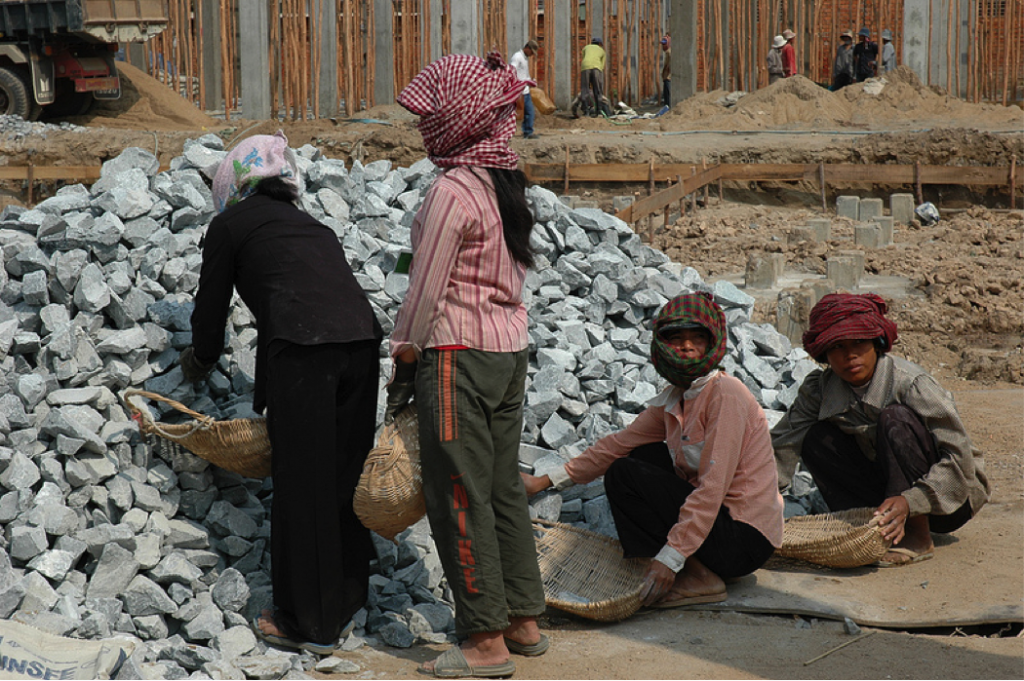
GISIG members would like to support teachers teaching in difficult circumstances eg. with no resources, to very large classes or in refugee camps etc. Between us at GISIG, we have a range of experience of different types of teaching.
Have a look at the following resources:
- 3 articles about teaching in refugee camps (Greece and Calais) from our June 2016 GISIG newsletter
- a list of various materials that may well help in the link to Julie’s Heart ELT ‘Low Resource Classroom’ on Julie Pratten’s: http://heartelt.org/ site (scroll down)
- links to Julie’s ‘low resource classroom’ webinars with Nellie Deutsch.
- A viceo with Anke Fedrowitz, a German teacher, teacher trainer, author with over 25 years experience of teaching German as a second language to the children of immigrants and refugees from roughly 20 countries. https://youtu.be/4XdXRH4DjQs
- a summary of a short training session for volunteer teachers in Calais by Linda Ruas and Ann Cowie
- a useful information site about volunteering in Greece sent by Eliza Winnert of ‘We Are Here’ (http://weareherecentre.org/) : http://www.greecevol.info/index.php
- Materials for training and self access to help untrained volunteers teaching English in refugee camps in Greece.
- Julietta Schoenmann’s article about her work with mobiles in Nigeria
If you need any more resources or support, contact [email protected] and we will try to put you in touch with someone who can help.

Here a review of Amritavalli, Teaching in Deprived Circumstances. Maximising Learner Autonomy (Bangalore 2007):
http://www.hltmag.co.uk/feb13/pubs01.htm Published 2013 in HLT
–Bill
Beyond teaching refugees, migrants, there is the whole vast area of teaching kids in poverty. EDUCATING BLACK BOYS is an acclaimed Aljazeera documentary (2012) about the problems of education for young African-American boys and teens in Baltimore.
Watch this 47-min. film: https://www.youtube.com/watch?v=bznanQU2hrA It has much material about the importance of building a love for reading among kids from extreme poverty backgrounds, about the whole dimension of racism and racial stereotyping as it affects American education and the criminal justice system, and the whole question of socioeconomic ‘class in the classroom’.
The film is not about teaching ELLs, but many problems touched on can be related to wherever you teach, if your learners are from marginalized backgrounds, subaltern social strata. Although nearly 80% of ‘white’ teen males graduate high school in the US, only 47% of African-American males achieve high school graduation nation-wide, and in some cities, line NYC, it is less than a third. The film probes why that is, very concretely, looking at Black lives and education in profound crisis in one of America’s most problem-stricken cities, Baltimore.
Dennis – member GISIG advisory committee. I persuaded my wife, Anke Fedrowitz, a German teacher, teacher trainer, author with over 25 years experience of teaching German as a second language to the children of immigrants and refugees from roughly 20 countries to write a reply here and add a link to a short video I made of her giving some further comments. Over to Anke……….
——————
There is no single recipe – no right one way to teach a language.Begin by thinking of the situation you as a volunteer are in and the situation your learners are in. You must be clear why you want to be a volunteer because you are a very important person for the people who want to learn English. And you must always try to imagine the problems and the situation from the point of view of the learners. You don’t need to speak their language(s), but try to find out something about it/them. Are there any vowels or consonant sounds that a phonetic comparison between their mother tongue(s) and English will show there are predictable sources of difficulty? Is there anything about their tense system or any other important feature of the language that is likely to produce problems with their mastering the English language system? And apart from language, if you possibly can, find out what they can do – sing, dance, stand on their heads, whistle, play football. This is very important. What they can’t do and must learn will be all too clear to them. Be on the side of your learners. Practice your own skills in empathy.
——–
If you have 9 minutes to spare and want to hear more of what Anke has to say go to:
https://youtu.be/4XdXRH4DjQs
Teaching in difficult circumstances’ is certainly the situation in occupied Palestine is one of those suffocating spaces. The MLA just released this report on conditions within Palestinian universities: https://mlaboycott.files.wordpress.com/2016/12/mla-palestinian-voices.pdf
It deserves to be discussed inside IATEFL and certainly beyond. There could be discussion here. Virtually no Palestinian colleagues in the schools and universities teaching EFL are members of IATEFL, basically none in Gaza can even leave to attend a conference anywhere. We have as yet no Palestinian members of GISIG to my knowledge. Nor is there any member of GISIG based in Israel at this point. One can wonder why.
hi – just came across this section of your site and will link to it from the Facebook group of the ‘Teaching English in Large Classes’ research and development network – website home page here: http://telcnet.weebly.com/.
Resources we’ve developed since 2008 might be useful – for teacher trainers here – http://www2.warwick.ac.uk/fac/soc/al/research/groups/llta/resources/telc/training
Presentations and resources for teachers here – http://telcnet.weebly.com/presentations.html and here – http://telcnet.weebly.com/resources.html
Also, started this website with a group of students but haven’t updated recently – http://crisis-elt.weebly.com/
I hope some of it’s useful to others